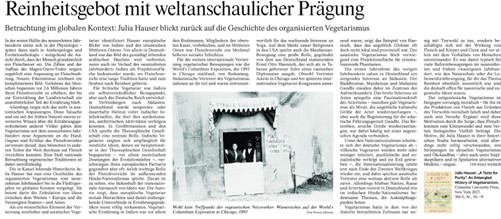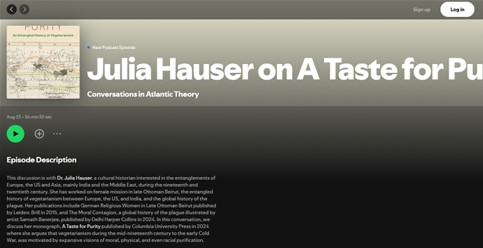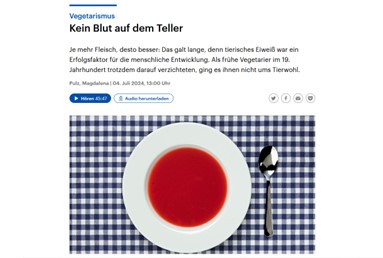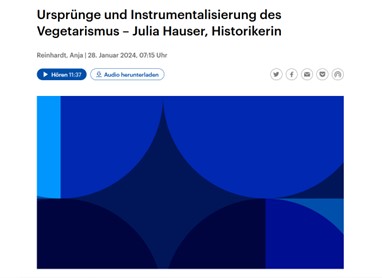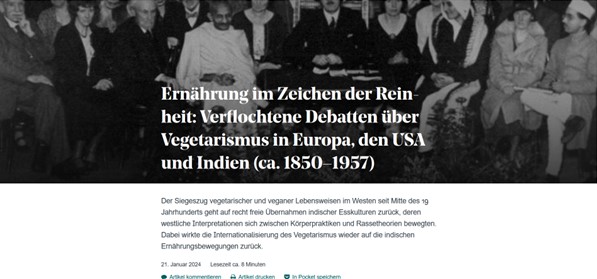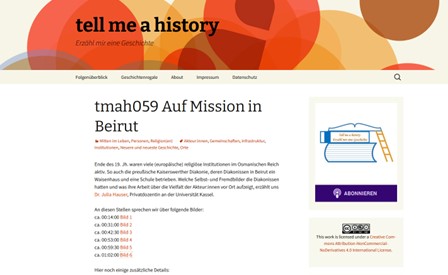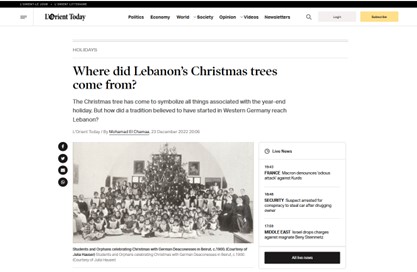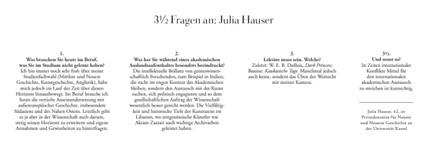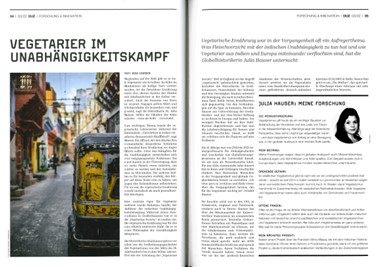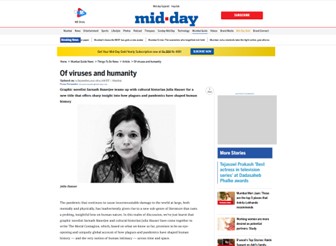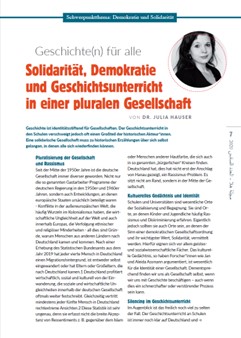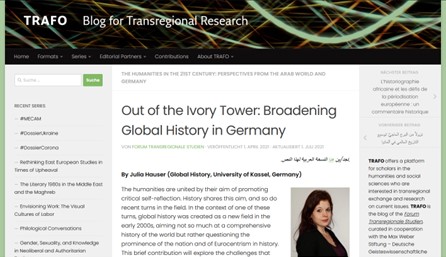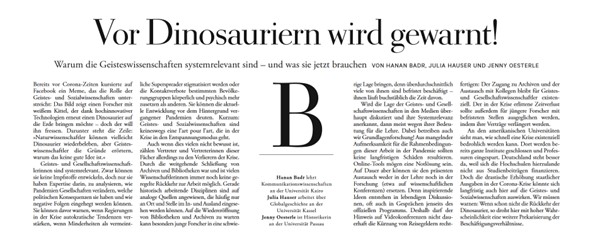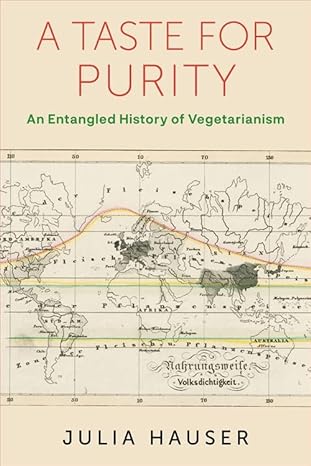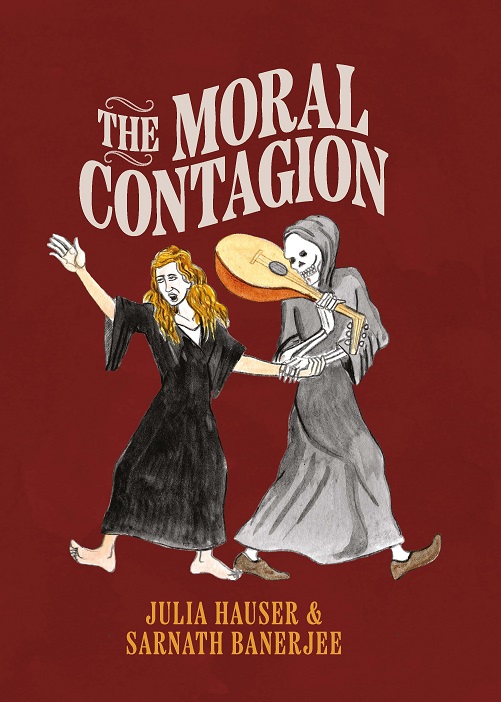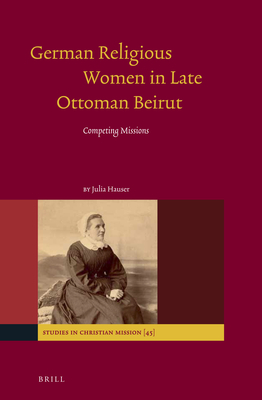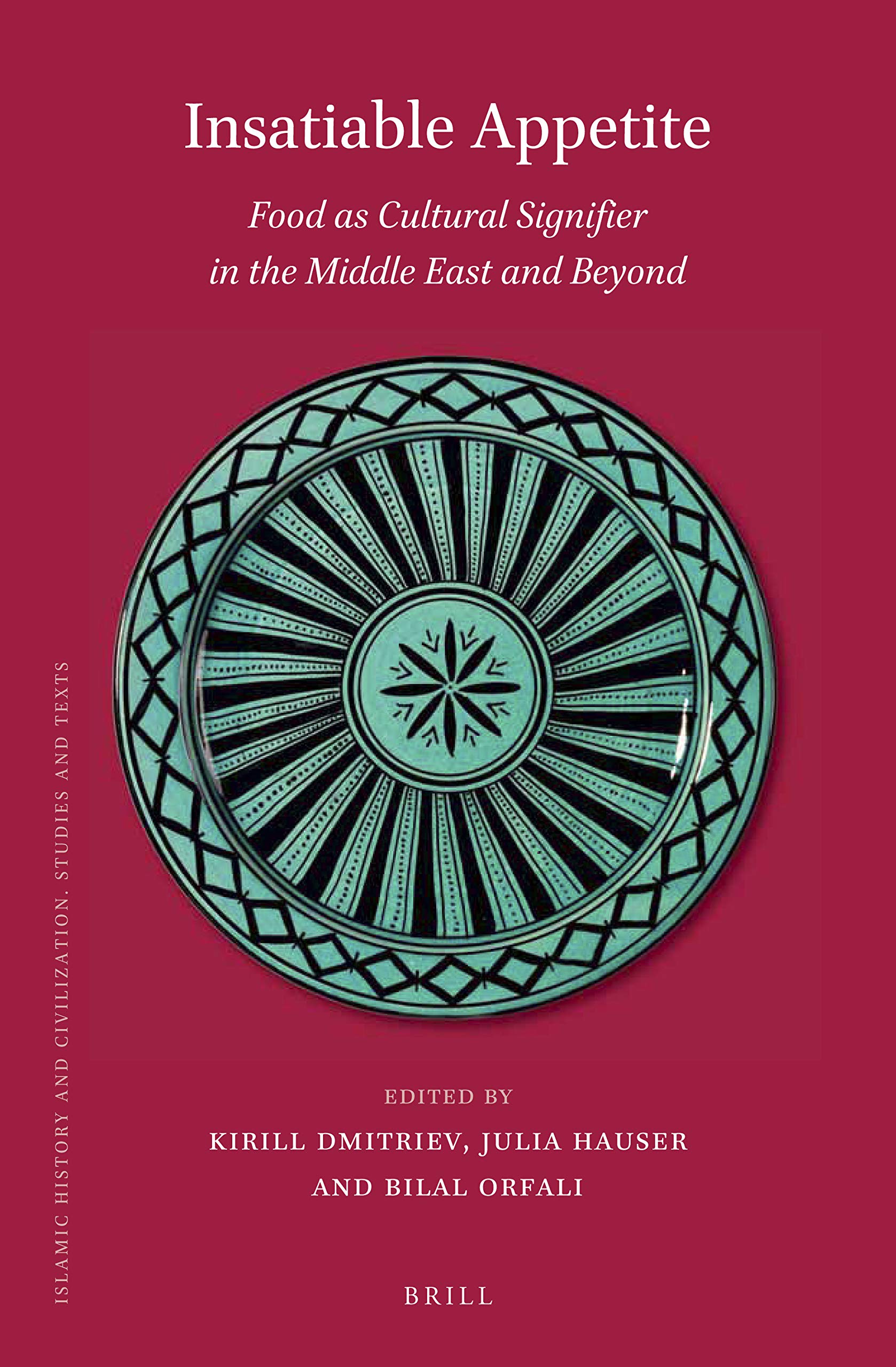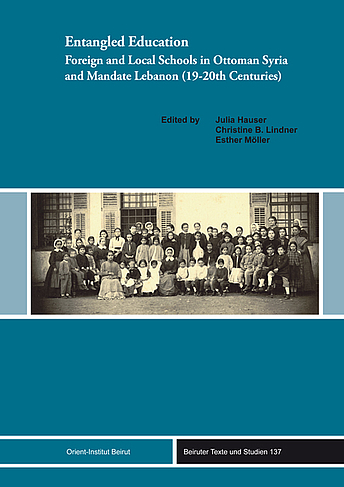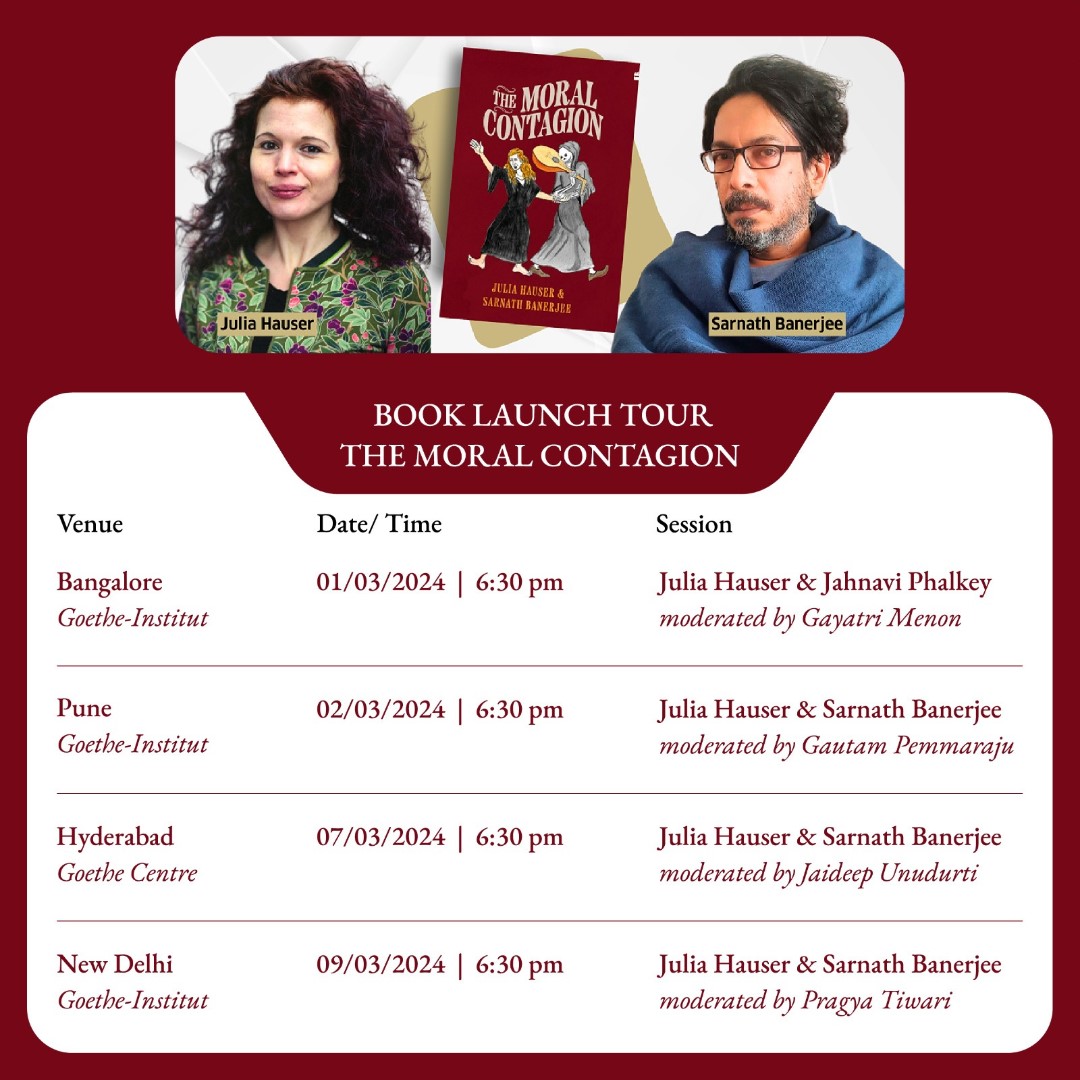
In the media:Julia Hauser: Ernährung im Zeichen der Reinheit: Verflochtene Debatten über Vegetarismus in Europa, den USA und Indien (ca. 1850–1957), in: Geschichte der Gegenwart, 21 January 2024
Gesa Coordes, Vegetarier im Unabhängigkeitskampf, in: DUZ. Magazin für Wissenschaft und Gesellschaft, no. 3/2022, 18 March 2022, p. 34–6
Julia Hauser: Demaskiert: Covid-19 und die kulturelle Dimension der Debatten um die Maskenpflicht / Unmasked: Covid-19 and the Cultural Dimensions of the Debate on Mandatory Face Masks, in: Geschichte der Gegenwart, 8 April 2020
|
 Julia Hauser is a non-salaried senior lecturer (Privatdozentin) in Modern History at the University of Kassel, Germany. In February 2022, she obtained the Habilitation, an advanced teaching licence making candidates eligible for permanent professoral positions, in Modern History. After obtaining her PhD from the University of Göttingen summa cum laude in 2012, she worked as an assistant professor of global history at the University of Kassel from 2014 to 2021. In her research and teaching, she looks at Germany’s entanglements with other parts of the world, most notably the Ottoman Empire and India, from the “long” 19th century to the middle of the twentieth century. Julia Hauser is a non-salaried senior lecturer (Privatdozentin) in Modern History at the University of Kassel, Germany. In February 2022, she obtained the Habilitation, an advanced teaching licence making candidates eligible for permanent professoral positions, in Modern History. After obtaining her PhD from the University of Göttingen summa cum laude in 2012, she worked as an assistant professor of global history at the University of Kassel from 2014 to 2021. In her research and teaching, she looks at Germany’s entanglements with other parts of the world, most notably the Ottoman Empire and India, from the “long” 19th century to the middle of the twentieth century.
In her first book, published in 2015 by Brill, she examines the activities of the Kaiserswerth Deaconesses, a German Protestant female order, in Beirut from 1860 to 1918. Her study is set in a period in which the German Empire sought to gain influence in the Ottoman Empire. At the same time, the Ottoman Empire pushed through important reforms while local protagonists in its Arab provinces initiated related modernization efforts. Julia Hauser shows how the deaconesses’ mission opened up a broader scope of agency to German women while also sowing seeds for conflict between these women and their Arab students. At the same time, she underlines how the concept of a civilizing mission embraced by the deaconesses was counteracted by continuous processes of negotiation with local protagonists.
Apart from her peer-reviewed monographs, two peer-reviewed edited volumes, and one journal issue co-edited by her, Julia Hauser published peer-reviewed articles in the Beihefte zur Historischen Zeitschrift, the Journal of World History and South Asia. Journal of South Asian Studies. Further articles by her appeared in WerkstattGeschichte and various edited volumes. Moreover, she wrote blog posts, inter alia for the Swiss history blog Geschichte der Gegenwart. Julia Hauser was a fellow at Rice University, Houston/Texas, USA, Orient Institut Beirut (OIB), Lebanon, and the International Center of Advanced Studies: Metamorphoses of the Political (ICAS:MP) in Delhi. Her work which has taken her, inter alia, to archives and libraries in Germany, Lebanon, India, Britain, France, and the United States, has been supported by grants by the Deutsche Forschungsgemeinschaft (German Research Foundation), the Gerda Henkel Foundation, the Fritz Thyssen Foundation, the Max Weber Foundation and the German Federal Ministry of Education and Research. Fields of Expertise German history (19th and 20th century) Entangled history of Germany and the Ottoman Empire during the „long“ nineteenth century Entangled history of Germany and South Asia (c. 1850–1950) History of gender and the body History of colonialism and decolonization Key Publications
German Religious Women in Late Ottoman Beirut. Competing Missions. Leiden; Boston: Brill, 2015. |
